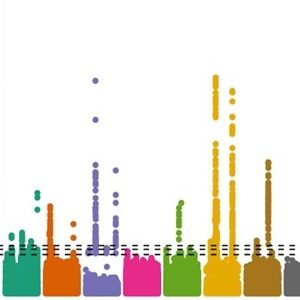Research
Genetics and Epidemiology of Hematology, Hemostasis and Inflammation Traits
 With collaborators from multiple groups, including NHLBI’s Trans-Omics for Precision Medicine (TOPMed) program, the Blood Cell Consortium (BCX), the Cohorts for Heart and Aging Research in Genomic Epidemiology (CHARGE) consortium, and the Population Architecture using Genomics and Epidemiology (PAGE) consortium, the Raffield lab works to identify genetic variants associated with hematology, hemostasis, and inflammation traits in diverse cohort and biobank studies. We then work to link identified genetic variants to their molecular function through integration of functional annotation and ‘omic quantitative trait loci (QTL) resources. We are also involved in generation and analysis of flow cytometry-based measures of immune cell abundance and RNA-seq data in Jackson Heart Study, one of the largest population based cohorts of African American adults. Finally, we are exploring links between social determinants of health, inflammation and immune cell measures, and health outcomes, including Alzheimer’s disease and related dementias, cardiometabolic disease, and COVID-19 related outcomes.
With collaborators from multiple groups, including NHLBI’s Trans-Omics for Precision Medicine (TOPMed) program, the Blood Cell Consortium (BCX), the Cohorts for Heart and Aging Research in Genomic Epidemiology (CHARGE) consortium, and the Population Architecture using Genomics and Epidemiology (PAGE) consortium, the Raffield lab works to identify genetic variants associated with hematology, hemostasis, and inflammation traits in diverse cohort and biobank studies. We then work to link identified genetic variants to their molecular function through integration of functional annotation and ‘omic quantitative trait loci (QTL) resources. We are also involved in generation and analysis of flow cytometry-based measures of immune cell abundance and RNA-seq data in Jackson Heart Study, one of the largest population based cohorts of African American adults. Finally, we are exploring links between social determinants of health, inflammation and immune cell measures, and health outcomes, including Alzheimer’s disease and related dementias, cardiometabolic disease, and COVID-19 related outcomes.
Genetic Analysis in Diverse Populations
Unfortunately, human genetics research is dramatically unrepresentative of global populations, with ~95% of genome-wide association study participants of European or East Asian ancestry. Work in the Raffield lab focuses on improved inclusion of diverse populations in a variety of genetic analysis efforts, including sequencing-based analyses of rare variants using aggregate tests, genotype imputation using larger and more diverse reference panels, and generation of polygenic scores. We are involved in the new NHGRI Polygenic RIsk MEthods in Diverse populations (PRIMED) consortium, with a focus on polygenic scores for clinical laboratory assays through our work within the EPIC-PRS site.
Multi-Omics
Additionally the Raffield lab is interested in utilizing rapidly expanding genomic, epigenomic, transcriptomic, proteomic, and metabolomic datasets to understand human disease. Currently (2022) our group is exploring appropriate analysis methods for proteomic and metabolomic data across cohorts and across platforms in TOPMed, helping lead initial cross-cohort analysis efforts for TOPMed generated metabolomics data and exploring differences in pQTL detection between different proteomics platforms. We are also interested in methods which use genetic data to impute ‘omics features (including transcriptome-wide association studies (TWAS)), with ongoing efforts to extend these methods to protein and metabolite data.